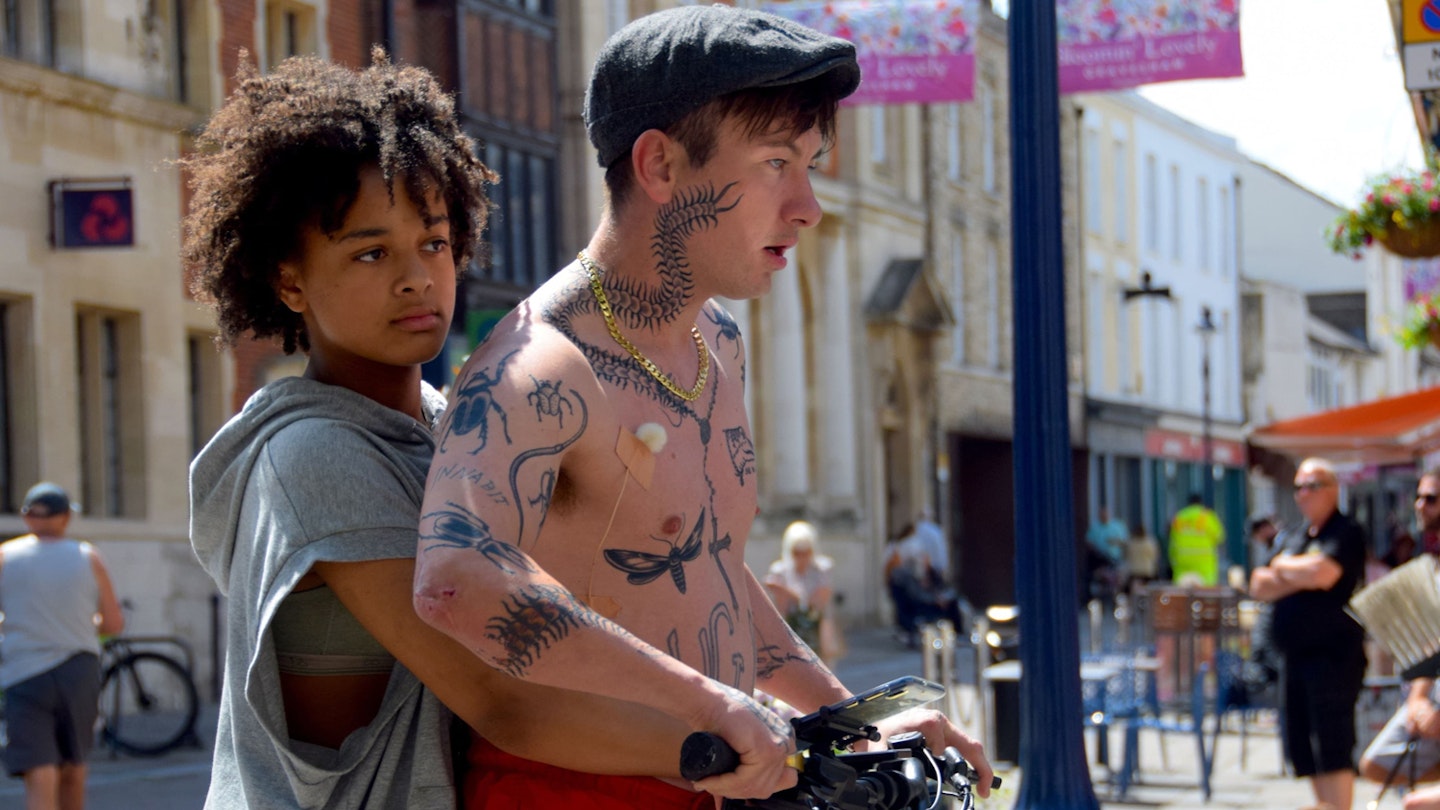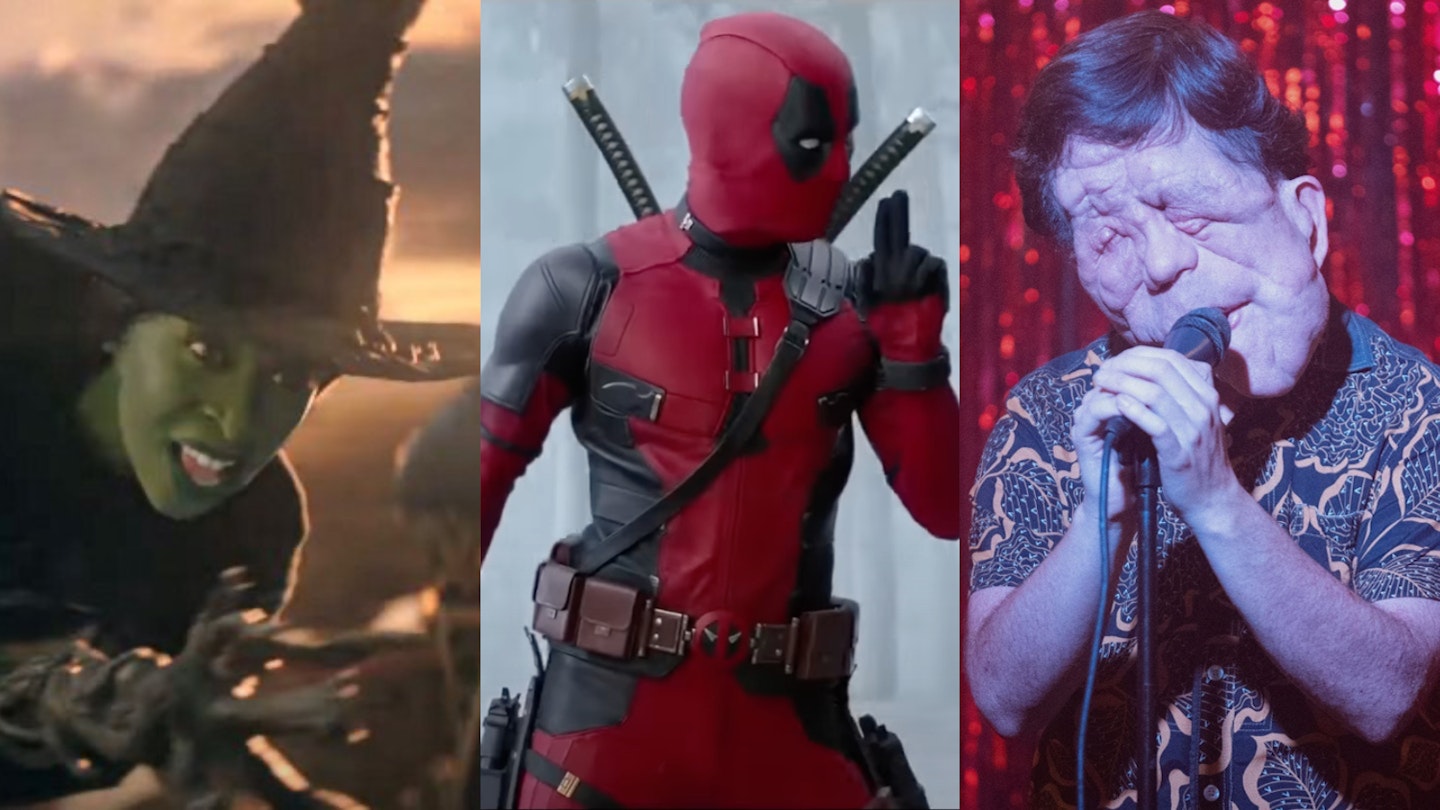Following the likes of her previous films Fish Tank and American Honey, writer and director Andrea Arnold delivers another working-class-drama-meets-magical-realism coming-of-ager with Bird. Acting newcomer Nykiya Adams is Bailey, a girl living in a squatted home with her eccentric father Bug (Barry Keoghan) – a layabout hustler who spends his time singing to a toad to get it to produce some hallucinogenic slime that he can sell on – and older brother Hunter (Jason Buda). Bug is getting married to a girl called Kayleigh (Frankie Box, breakout star of Eva Riley’s Perfect 10), who is the opposite to Bailey in every way, and Bailey isn’t happy about it. Her mother, Peyton (Jasmine Jobson), lives across town with her three young siblings and an abusive new partner, Skate (James Nelson-Joyce).

Bailey spends much of her time roaming around the streets and fields of North Kent with no supervision, taking videos on her phone as a creative outlet. One day, she comes across a mystical, childlike man called Bird (Franz Rogowski), who is looking for his birth family. She decides to help him, and the two form a tender friendship, Bird giving Bailey the attention and care she has been craving.
Ultimately this is a film about hope.
Adams is the latest non-actor that Arnold has plucked from the community she wants to capture to be her star, and is a total revelation. A spiky, impulsive presence longing for connection, Bailey has real depth, and her odd-couple pairing with Bird is surprisingly convincing. As the enigmatic stranger, Rogowski is as mesmerising as ever, his unconventional clothing and graceful, balletic way of moving making him seem otherworldly. Having the most fun is Keoghan, whose Bug is a tattoo-covered caricature that you can’t help but root for – balancing comedic idiosyncrasy with a short-tempered edge, and the heart of someone who became a parent far too young.
Bird’s tone is its unique element in terms of how it fits with Arnold’s other work, but also its most inconsistent with regards to viewing experience. There are some really goofy moments in here, usually featuring Bug, but also – as you’d imagine in a tale like this, with a story thread about domestic abuse – very intense flashes of violence, and the world Arnold situates Bailey in is an incredibly oppressive one. Throw in the third act’s push into the fantastical, and the switch between moods can be unsettling. Ultimately, though, this is a film about hope, as characters are confronted by the difference between the family they hoped for and the one that they have. And, thanks to a wonderfully uplifting final sequence, it will leave you with happy tears in your eyes.



